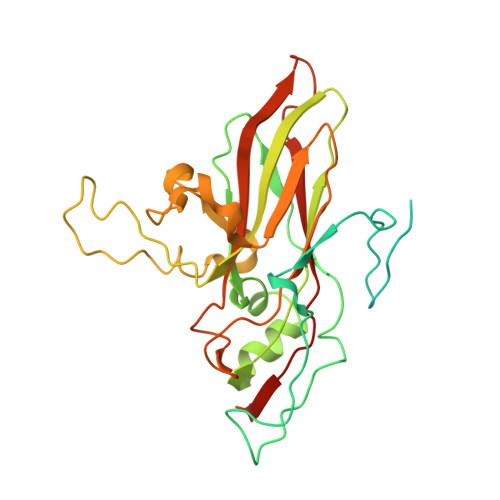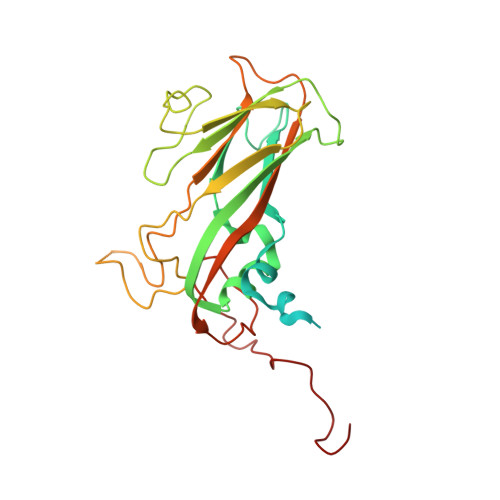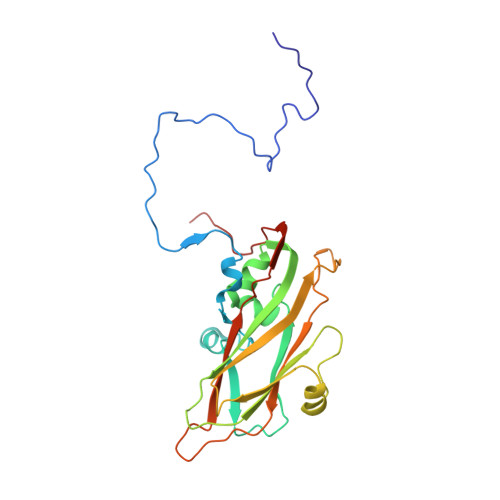The enterovirus 71 procapsid binds neutralizing antibodies and rescues virus infection in vitro.
Shingler, K.L., Cifuente, J.O., Ashley, R.E., Makhov, A.M., Conway, J.F., Hafenstein, S.(2015) J Virol 89: 1900-1908
- PubMed: 25428877
- DOI: https://doi.org/10.1128/JVI.03098-14
- Primary Citation of Related Structures:
3J91, 3J93 - PubMed Abstract:
Enterovirus 71 (EV71) is responsible for seasonal outbreaks of hand, foot, and mouth disease in the Asia-Pacific region. The virus has the capability to cause severe disease and death, especially in young children. Although several vaccines are currently in clinical trials, no vaccines or therapeutics have been approved for use. Previous structural studies have revealed that two antigenically distinct capsid forms are produced in EV71-infected cells: an expanded empty capsid, sometimes called a procapsid, and the infectious virus. Specifically, an immunodominant epitope of EV71 that maps to the virus canyon is structurally different in the procapsid and virus. This structure-function study shows that the procapsid can sequester antibodies, thus enhancing EV71 infection in vitro. The results presented here suggest that, due to conformational differences between the EV71 procapsid and virus, the presence of the procapsid in natural virus infections should be considered in the future design of vaccines or therapeutics. In a picornavirus infection, both an infectious and a noninfectious empty capsid, sometimes referred to as a procapsid, are produced. It was novel to discover that the procapsid form of EV71 was expanded and antigenically distinct from the infectious virus. Previously, it had been supposed that this empty capsid was an off-pathway dead end or at best served for storage of pentameric subunits, which was later shown to be unlikely. It remains unexplained why picornaviruses evolutionarily conserve the wasteful production of so much noninfectious capsid. Here, we demonstrate that the EV71 procapsid has different antigenic properties than the infectious virus. Thus, the procapsid has the capacity to sequester neutralizing antibody and protect the virus, promoting or restoring a successful infection in vitro. This important observation should be considered in the future design and development of vaccines and therapeutics.
- Department of Medicine and Department of Microbiology and Immunology, The Pennsylvania State University College of Medicine, Hershey, Pennsylvania, USA.
Organizational Affiliation:


















